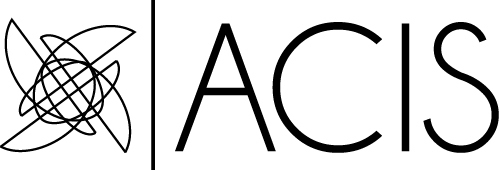
As someone with a scholarly focus on recent and contemporary Northern Irish drama and theatre, I normally use our annual ACIS meetings to luxuriate in the papers presented by such engaging and innovative colleagues as Joan Dean, Susan Harris, and Mary Trotter. However, I treated this assignment from Breac as an opportunity to immerse myself in an allied area of which I am largely ignorant: contemporary—and by that I mean post-Heaney—poetry.
Liker many of my colleagues, I usually find myself teaching outside of my specialization, which means I’m relatively comfortable introducing students to such poets as Yeats and Heaney, but not much more. So during this conference, I took advantage of the surprising variety of papers that focused on such lesser known poets as Paula Meehan, Sinéad Morrissey, and Eiléan ní Chulleanáin.
“A Poetic Complication of Place,” Panel 2E, provided an ideal survey of mid and late twentieth-century poetry with two papers that surveyed a wide range of poets. In their separate papers, Anthony Bradley and Lucy Collins both explored urban poems by such varied poets as Louis MacNeice, Ciaran Carson, Thomas Kinsella, and Paula Meehan. In the panel’s final paper, Kacie Hittel discussed the unique status of Moya Cannon as an Irish poet who writes neither about the land nor urban spaces, but the Irish seascape.
In “Space, Place, The Body, and Nature in Contemporary Poetry,” panel 5F, the presenters focused on poets who are just entering the middle of their careers. Nikhil Gupta examined the Bandanna libretto of Paul Muldoon, perhaps the most well known of the post-Heaney poets, and this work’s possible commentary on the Northern Irish conflict. His paper was followed by Carolann Madden’s exploration of the young Northern poet Sinéad Morrissey, whose work signals a moving away from the political obsessions of the past. Kathryn Kirkpatrick closed the panel by presenting a broadranging and impressive reading of Meehan’s recent Chair of Poetry Lectures, and how her preoccupations with nature lead her audience into a radically different poetic ideal, one that suggests a nature-centric view of the human world.
Although by Saturday I was sorely tempted to skip the ninth session to enjoy the sun of a Saturday afternoon in Ft Lauderdale, I forced myself to Panel 9F, the Poetry Roundtable focused on Eiléan Ní Chuilleanáin’s most recent collections of poetry, Selected Poems (2008) and The Sunfish (2009). I’m glad I did; despite the expertise that for me characterizes most ACIS panels and papers, this Roundtable became my high point. Although six panelists had prepared material to share, Guinn Batten emerged as a type of salon doyenne who oversaw a robust and friendly group discussion that found it difficult to move beyond Ní Chuilleanáin’s amazingly rich sequence “The Sun-Fish.” After nearly 45 minutes of discussion, we could barely pull ourselves away from it to move on to such mysterious and cavernous poems as “The Copious Dark.” I left this panel convinced that Ní Chuilleanáin is the giant of post-Heaney poetry.
